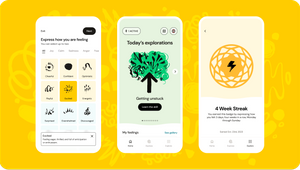
A Brief History of the AI Arms Race (And What’s Next)

If you know anything about artificial intelligence, you know about ChatGPT. OpenAI began the AI arms race on November 30th, 2022, officially launching ChatGPT based on large language models. By January 2023, it became the world's fastest-growing software application, attracting over 100 million users and achieving a valuation of $29 billion. By May, ChatGPT covered 206.7 million users, achieving growth akin to a volcanic eruption.
Observing this progress, Google became genuinely concerned about its market standing. With its own repository, Google was confident that no competitor could surpass it in any vertical. But OpenAI's entry truly caught them off guard.
Given its standing as a tech giant, Google couldn't afford to lag behind. In March 2023, Google announced Bard, an AI model to rival OpenAI's ChatGPT. Since its launch, Bard has attracted millions of users with 142 million users utilising Google Bard's chatbot by May. These numbers are significant for Google, marking its entry into the competitive arena.
However, ChatGPT remains significantly ahead, dominating the market trends with more than 100 million users, posing a challenge for Google to catch up. While Google garnered attention with the release of Bard, the question arises: has Google already lost the AI war?
Well, Google isn't backing down. Learning from their mistakes, they rebranded Bard and introduced Gemini in December 2023. The rationale behind this rebranding was explained by Mr. Sundar Pichai, CEO of Google and Alphabet as follows, "Gemini represents our overarching approach to building the most capable and secure AI model. Bard served as the most direct interface for users to interact with our models, hence evolving it into Gemini made perfect sense, as users are now directly engaging with the underlying Gemini model."
When two giants clash, consumers always stand to benefit; that's precisely what occurred.
Now the swords are drawn, and the battle is imminent. However, Google faces a smaller army in terms of the AI arena, especially since OpenAI had already advanced to GPT-4 when Gemini launched. Gemini entered the race with Gemini 1.0, displaying potential as the army began to strengthen. Subsequently, Gemini introduced Gemini 1.0 Ultra, showcasing substantial improvements, followed by Gemini 1.5 Pro, the most enhanced version to date.
Google is striving to strengthen their position, engaging in a continuous battle with OpenAI's GPT. Based on the data, however, Gemini 1.0 Ultra doesn't match the capabilities of GPT-4 yet it does put up a formidable fight against GPT-3.5.
Things began to change after the release of Gemini 1.5 Pro, a more enhanced and powerful AI model with a highly efficient architecture. It entered the arena on a positive note, engaging in a formidable battle against the strong army of GPT-4.
The battle continues. Ultimately, AI is reshaping the world by improving industries such as healthcare, manufacturing, customer service, information technology, and providing enhanced experiences and greater efficiency for both customers and workers, thus simplifying people's lives. I don't wish for a clear winner; instead, let them persist in the fight and continue to pioneer the development of the most advanced gen-AI-enabled future.
A Crisis of Leadership
In November 2023, OpenAI faced a leadership crisis, which significantly impacted them. On November 17th, Sam Altman was suddenly fired by the company’s board without any reasonable justification or warning. In a swift, dramatic turn of events, Altman was back as the company’s CEO days later, ending an extraordinary week in the AI industry. However, the story does not end here. Not surprisingly, upon his return, Altman ousted the board members who fired him and replaced them with a new team. This whole drama of firing each other (Like, babies are playing) was there for a month and as OpenAI is backed by Microsoft, after the intervention of Microsoft things get settled down.
People believe in their leaders; when leaders themselves engage in power struggles, it inevitably erodes the trust of their users. OpenAI was aware it had a new competitor, and it wasn't just any start up company; it was the ruler of the tech industry: THE GOOGLE.
You must have already guessed that Google seized this opportunity during the leadership crisis and focused their efforts on Gemini to rival ChatGPT. However, rushing to win this battle compromised quality. In today's social media-driven world, users are quick to notice. Gemini faced significant criticism earlier this year from users due to erroneous results, biased depictions favouring individuals of colour and inaccurate portrayals of historical figures like the Founding Fathers and the Pope. It also allegedly made inappropriate comments about India’s Prime Minister Narendra Modi. Google issued an apology to the Indian government, acknowledging the platform's unreliability. Following this controversy, Google suffered a $90 billion loss, with shares dropping by 4.5% - a substantial setback. Despite its initial success, Google found itself embroiled in controversy, highlighting the volatile nature of this battle.
In the end, it was a direct benefit for ChatGPT. Open AI didn't need to prove themselves further; people forgot about their leadership crisis and the company regained users’ trust. This underscores the importance of quality, which Google overlooked in its rush to win.
Where We Are Today
Both Gemini and GPT are evolving with each version. Gemini 1.0 Pro, while not as capable as GPT-4 according to an openly available report, shares more similarities with GPT-3.5.
Recently, Gemini launched Gemini 1.0 Ultra with significant progress compared to Gemini 1.0 Pro, showing true competitiveness with GPT-4. In February 2024, Google introduced Gemini 1.5, promising enhanced performance. After reviewing openly available reports, Gemini appears to be a strong competitor to GPT-4.
Regarding Gemini 1.5 Pro's large context window, it can process extensive data in one go. According to Google, the one million context length can handle 700,000 words, one hour of video, 11 hours of audio, or codebases with over 30,000 lines of code.
Despite challenges in older Gemini versions, its multimodal models are an exciting part of generative AI's future. Both possess great potential for future capabilities in the AI tools landscape.
Gemini, directly trained on all this data, is likely to have much greater capabilities going forward, while ChatGPT indirectly achieves that by using third-party frameworks.
Gemini introduced a feature, Gemini Nano, which is lightweight and runs on mobile phones. This feature is more useful, providing accessible and secure information. Features like this will benefit a vast number of people and be truly valuable. ChatGPT seems a bit behind; they do not have any lightweight features that can compete with Nano.
ChatGPT-4 appears incredibly powerful, and although Google is slightly behind in the race, they are steadily growing their user base. Google entered the arena relatively late and needs to work hard to gain trust and users. However, with the two released versions, they are making commendable progress. On the other hand, ChatGPT is enhancing its power with the GPT-4 models.
OpenAI is developing GPT-5, and I'm eager to see if they introduce multimodal models with remarkable capabilities. I hope both giants continue to engage in the battle. It will be interesting to see who emerges as the winner.
The path isn't easy for them either, as new AI tools like Claude and Llama have already made their mark in the market. While we closely monitor Gemini and ChatGPT, it's uncertain which one could emerge as the market leader. Who knows?
Ultimately, users will decide, and regardless of the outcome, people will benefit from powerful AI in their daily lives.
Pratik Dasa is a senior lead software engineer at Code and Theory.















